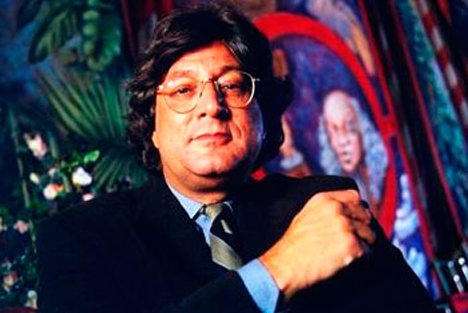
Call me an arts heretic but I’m not sorry that Garth Drabinsky didn’t get the sweetest deal from the judicial system.
I know that he has made a significant contribution to the theatre landscape both here and in the U.S. but I’m not buying the argument that his influence on the scene is such that we ought to ignore his crime.
I do agree with those columnists, in particular Kimberly Noble of the Star, who argues that Drabinsky was not your average white collar fraudster but not for the same reasons as many are saying.
Noble says that Drabinsky never lined his own pockets, but she allows that he owned a chalet at Sundance Resort and a house in Antigua.
Her impression, though, via a previous interview she had done with Drabinsky in the 90s, was that it was his love of the chase, the game, the unlikely triumph that drove him.
I find it ludicrous that Noble and those who wrote letters seeking leniency for Drabinsky would suggest that Drabinsky had no real interest in money. According to Noble, Drabinksy “forgot” about his real estate holdings. But to me, that’s a sign of someone’s profound sense of entitlement. For just a second, think about how the Drabinsky scenario is being viewed by people who really do have nothing. Did Drabinsky take the TTC? Is he living in an inexpensive apartment? Does he ever appear in a cheap suit? Of course not.
I recall seeing Ragtime at the North York Centre for the Arts and commenting on the way out that, say what you will about his accounting discrepancies, Drabinsky certainly puts a lot of money into the show on stage. His shows were lavish and spectacular, sparing no expense and he knew talent when he saw it. And yes, the Recital Hall at the North York Performing Arts Centre, which Drabinksy helped build, has the city’s best acoustics – thank you, Garth.
But he also appreciated the lifestyle that went with the big deal.
And Drabinsky didn’t do everything he did for the love of art, truth and beauty, or even to pursue his passion for the ultimate deal.
That’s why we’ve been asked to consider Drabinsky’s battle with polio as a child, which took a physical and emotional toll on the man, and for which, the conventional wisdom goes, he sought solace in his personal success.
We are supposed to feel some sympathy for Drabinsky because of his medical misfortunes but I don’t see the same attitude applied to the legions of criminals who go in front of the judge, each, doubtless with a story to tell about how unfortunate events in their personal pasts led them to a life of crime.
Hunger for power and control moved Drabinsky, famously litigious, to sue all those people who wrote or expressed criticism of him or his business practices.
I agree with Judge Benotto who, on sentencing, said in her decision that Drabinsky wasn’t motivated by greed. He wasn’t in it solely for the money, though he did make lots, but he wasn’t only inspired by the love the arts either.












